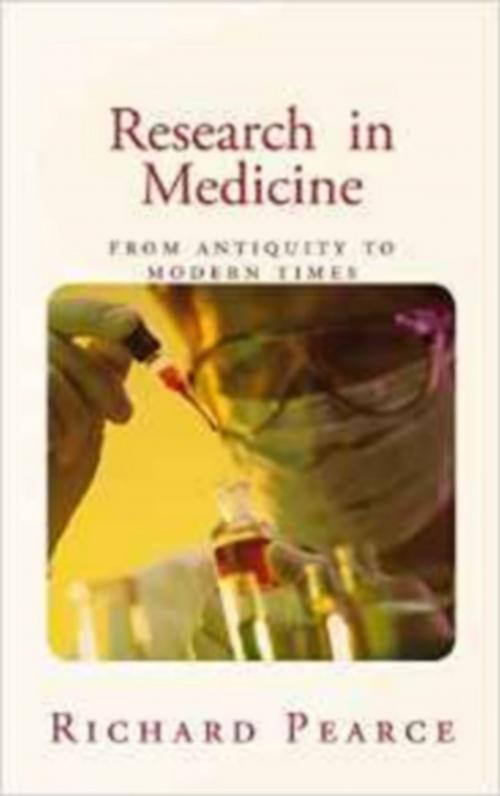Research in Medicine
from antiquity to modern times
Nonfiction, Health & Well Being, Medical, Reference, Essays, History, World History| Author: | Richard M. Pearce | ISBN: | 9782366592481 |
| Publisher: | Editions Le Mono | Publication: | September 9, 2016 |
| Imprint: | Editions Le Mono | Language: | English |
| Author: | Richard M. Pearce |
| ISBN: | 9782366592481 |
| Publisher: | Editions Le Mono |
| Publication: | September 9, 2016 |
| Imprint: | Editions Le Mono |
| Language: | English |
The phrase "Research in Medicine" will naturally arouse different thoughts and associations in the minds of different groups of men. The bacteriologist will be reminded of Pasteur, Koch, Behring and Flexner and the triumphs of bacteriology and serum-therapy; the surgeon, of Lister and antisepsis, of anesthesia, and of the X-ray; the physician of new means of cure and of diagnosis, of specific sera and vaccines, of the electrocardiograph, the polygraph and other complicated instruments of precision; and the average layman of a confused and confusing welter of catchwords and slogans for popular agitations vaguely associated with antitoxins, mosquitoes, good water supply, sewage disposal, lowered infant mortality and the modern treatment of tuberculosis. But in the last analysis the impressions of all would be of progress in a period representing a little more than half of the past century. This period is indeed the golden age of medical progress and one to which the historian or philosopher must give his best attention if he is to interpret, properly, the impulses which actuate medical research at the present time... The presentation of the subject of research in medicine aims to demonstrate (1) that, wonderful as were the isolated achievements of the great discoverers in medicine in the early centuries, the great continuous advance in medicine during the past eighty years resulted from organized laboratory effort based on the principle of exact experimental methods, and (2) that it is the duty of the university so to organize its laboratories and hospital that this advance of medicine by research may continue, side by side with teaching, as a university function of benefit to student and faculty, as well as to the state and the general public welfare, and thus as an aid to the advancement of civilization...
The phrase "Research in Medicine" will naturally arouse different thoughts and associations in the minds of different groups of men. The bacteriologist will be reminded of Pasteur, Koch, Behring and Flexner and the triumphs of bacteriology and serum-therapy; the surgeon, of Lister and antisepsis, of anesthesia, and of the X-ray; the physician of new means of cure and of diagnosis, of specific sera and vaccines, of the electrocardiograph, the polygraph and other complicated instruments of precision; and the average layman of a confused and confusing welter of catchwords and slogans for popular agitations vaguely associated with antitoxins, mosquitoes, good water supply, sewage disposal, lowered infant mortality and the modern treatment of tuberculosis. But in the last analysis the impressions of all would be of progress in a period representing a little more than half of the past century. This period is indeed the golden age of medical progress and one to which the historian or philosopher must give his best attention if he is to interpret, properly, the impulses which actuate medical research at the present time... The presentation of the subject of research in medicine aims to demonstrate (1) that, wonderful as were the isolated achievements of the great discoverers in medicine in the early centuries, the great continuous advance in medicine during the past eighty years resulted from organized laboratory effort based on the principle of exact experimental methods, and (2) that it is the duty of the university so to organize its laboratories and hospital that this advance of medicine by research may continue, side by side with teaching, as a university function of benefit to student and faculty, as well as to the state and the general public welfare, and thus as an aid to the advancement of civilization...















